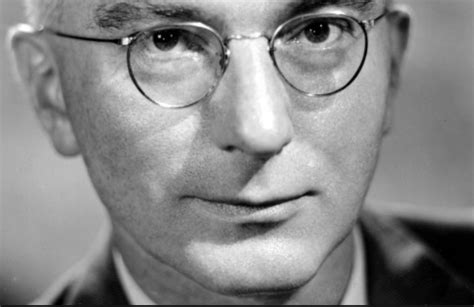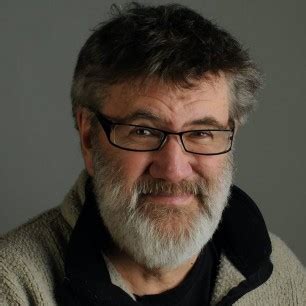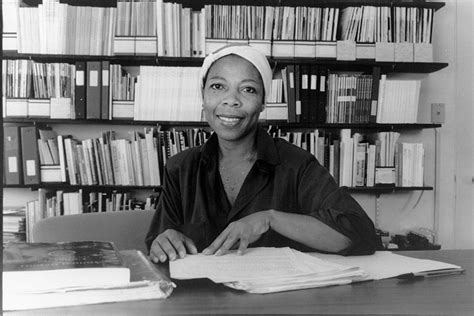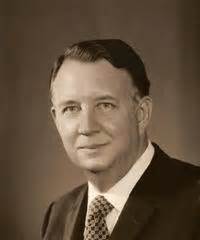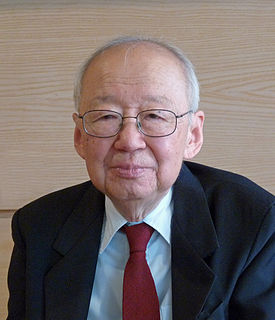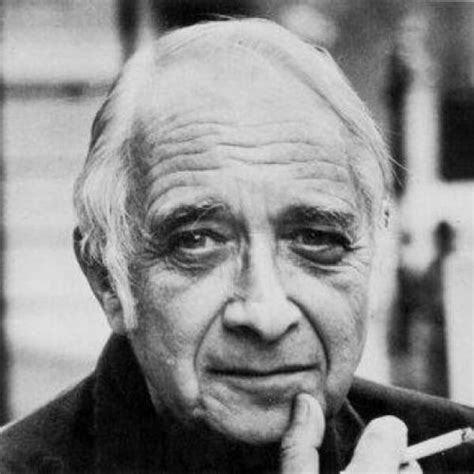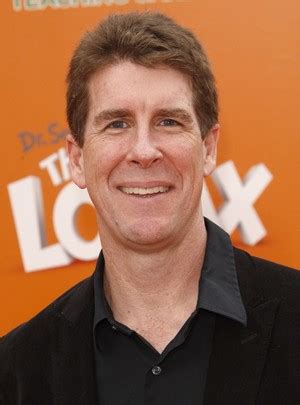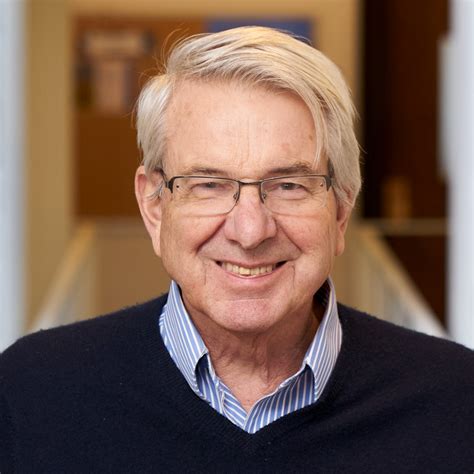Top 1200 Deep Philosophical Quotes & Sayings - Page 18
Explore popular Deep Philosophical quotes.
Last updated on April 20, 2025.
Scholars of the East and West have heroically consecrated their whole working lives to making available, by means of their own disciplines, Sufi literary and philosophical material to the world at large. In many cases they have faithfully recorded the Sufis' own reiteration that the Way of the Sufis cannot be understood by means of the intellect or by ordinary book learning.
A pleasant natural environment is a good - a luxury good, philosophical good, a moral goody-good, a good time for all. Whatever, we want it. If we want something, we should pay for it, with our labor or our cash. We shouldn't beg it, steal it, sit around wishing for it, or euchre the government into taking it by force.
I hold the view that the alchemist’s hope of conjuring out of matter the philosophical gold, or the panacea, or the wonderful stone, was only in part an illusion, an effect of projection; for the rest it corresponded to certain psychic facts that are of great importance in the psychology of the unconscious. As is shown by the texts and their symbolism, the alchemist projected what I have called the process of individuation into the phenomena of chemical change.
[This approach] displays the characteristic philosophical lust to vanquish the skeptic by arguing him out of his skepticism, without appeal to moral and political considerations or to the facts of everyday life. [...] But more often than not, if you give the skeptic everything he wants, then he will be successful in repulsing your attacks and terrorizing your position.
Philosophy springs from the love of being; it is man's loving endeavor to perceive the order of being and attune himself to it. Gnosis desires dominion over being; in order to seize control of being the Gnostic constructs his system. The building of systems is a gnostic form of reasoning, not a philosophical one.
The Christ within who is our hope of glory is not a matter of theological debate or philosophical speculation. He is not a hobby, a part-time project, a good theme for a book, or a last resort when all human effort fails. He is our life, the most real fact about us. He is the power and wisdom of God dwelling within us.
One of the things I want to do in the book is to explore how philosophy can be done in literature. I start doing that in the first chapter, by introducing the idea of "philosophy by showing". What literature/philosophy shows is how to look at some important facets of life in a new way, thus changing the frame in which subsequent philosophical argument proceeds.
You are worthy! Let those words sink deep into your heart. You are worthy. Life can get overwhelming for us, as our busy schedules keep us on our toes. Sometimes we forget that we need to intentionally slow down, take a deep breath, and remind ourselves of our purpose, the very foundation of why we do what we do. When we neglect to quiet our souls and rest in God's amazing grace, we miss out on the intimate opportunities where God assures us of our worthiness, clarifies our purpose, and strengthens us to endure each day.
One good reason for the popularity of "reductionism" among the philosophical outposts of the Western Establishment is that it can be, and is, used as a device for trying to take the wind, so to speak, out of the sails of Marxism. . . . In essence reductionism is a kind of anti-Marxist caricature of Marxist determinism. It is what anti-Marxists pretend that Marxist determinism is.
Every religious tradition on which we draw has a reverence for life. We are a part of an intricate web of life. Every tradition on which we draw teaches that the ultimate expression of our spirituality is our action. Deep spirituality leads to action in the world. A deep reverence for life, love of nature's complex beauty and sense of intimate connection with the cosmos leads inevitably to a commitment to work for environmental and social justice.
If we wish to draw philosophical conclusions about our own existence, our significance, and the significance of the universe itself, our conclusions should be based on empirical knowledge. A truly open mind means forcing our imaginations to conform to the evidence of reality, and not vice versa, whether or not we like the implications.
I'll be geeky right now too, because I love Sondheim. Anything he does I had a blast, because every time I do a show of his, I learn something about myself because he's philosophical. During that show, the cast was incredible Hugh and Dan Levine (who I played opposite of), all of us clicked and I love the show.
We have embarked globally on a path of unsustainable development. Our lifestyles, the way we produce goods and services, are all part of a system that is completely unsustainable. I see solutions to climate change leading to a much larger philosophical shift in the way human society develops. We need a new matrix to define what human progress is.
The deep-read is when you get gut-hooked and dragged overboard down and down through the maze of print and find, to your amazement, you can breathe down there after all and there’s a whole other world. I’m talking about the kind of reading when you realize that books are indeed interactive. . . . I’m talking about the kind of deep-read where it isn’t just the plot or the characters that matter, but the words and the way they fit together and the meandering evanescent thoughts you think between the lines: the kind of reading where you are fleetingly aware of your own mind at work.
The classic war movies of the post-Vietnam era have generally taken on grand, philosophical themes: the meaninglessness of war, the grinding down of man by the machine - the machine being war itself, represented by someone like Gunnery Sergeant Hartman in 'Full Metal Jacket,' the sadistic marine who turns his boys into instruments of death.
Nothing seems to matter quite as much. I no longer think about death in the concentrated way I once did. I don't know? you get so old and you sort of give up in some way. You've had your period of angst, your period of religious desperation, and you've arrived at a philosophical position where you don't need, or you can't bear, to look at it.
Some friendships in life sustain themselves only at a particular life stage, products of some mutual developmental problem to be resolved together, or of some external circumstance, like being housed in the same dormitory in boarding school. Others grow out of a deeper spiritual and philosophical affinity, which continues throughout life.
Shallow ecology is anthropocentric, or human-centred. It views humans as above or outside nature, as the source of all value, and ascribes only instrumental, or 'use', value to nature. Deep ecology does not separate humans - or anything else - from the natural environment. It does see the world not as a collection of isolated objects but as a network of phenomena that are fundamentally interconnected and interdependent. Deep ecology recognizes the intrinsic value of all human beings and views humans as just one particular strand in the web of life.
Constitutions are not designed for metaphysical or logical subtleties, for niceties of expression, for critical propriety, for elaborate shades of meaning, or for the exercise of philosophical acuteness or judicial research. They are instruments of a practical nature, founded on the common business of human life, adapted to common wants, designed for common use, and fitted for common understandings.
This philosophical postulate that the end of all being is the happiness of man has been sort-of covered over with evangelical terms and biblical doctrine - until God reigns in heaven for the happiness of man, Jesus Christ was incarnate for the happiness of man, all the angels exist and ... everything is for the happiness of man - and I submit to you that this is unchristian.
It's not a failure if a marriage or partnership ends after a certain number of years. I think, in general, we expect too much of partners. We can't fulfil a person's every single need and, after ten years or so, many relationships wear out. If we were more philosophical about it, we wouldn't try to blame the other person or be bitter.
The philosopher forms his principles on an infinity of particular observations. He does not confuse truth with plausibility, he takes for truth what is true, for false what is false, for doubtful what is doubtful, and probable what is probable. The philosophical spirit is thus a spirit of observation and accuracy.
In a sense, every human construction, whether mental or material, is a component in a landscape of fear because it exists in constant chaos. Thus children's fairy tales as well as adult's legends, cosmological myths, and indeed philosophical systems are shelters built by the mind in which human beings can rest, at least temporarily, from the siege of inchoate experience and of doubt.
Highly technical philosophical arguments of the sort many philosophers favor are absent here. That is because I have a prior problem to deal with. I have learned that arguments, no matter how watertight, often fall on deaf ears. I am myself the author of arguments that I consider rigorous and unanswerable but that are often not such much rebutted or even dismissed as simply ignored.
It is sufficiently evident from many circumstances, that the doctrine of the divinity of Christ did not establish itself without much opposition, especially from the unlearned among the Christians, who thought that it savoured of Polytheism , that it was introduced by those who had had a philosophical education, and was by degrees adopted by others, on account of its covering the great offence of the cross , by exalting the personal dignity of our Saviour.
I believe that there never was a creator of a philosophical system who did not confess at the end of his life that he had wasted his time. It must be admitted that the inventors of the mechanical arts have been much more useful to men that the inventors of syllogisms. He who imagined a ship towers considerably above him who imagined innate ideas.
We might even invent laws for series or formula in an arbitrary manner, and set the engine to work upon them, and thus deduce numerical results which we might not otherwise have thought of obtaining; but this would hardly perhaps in any instance be productive of any great practical utility, or calculated to rank higher than as a philosophical amusement.
The revolutionary spirit is mighty convenient in this, that it frees one from all scruples as regards ideas. Its hard absolute optimism is repulsive to my mind by the menace of fanaticism and intolerance it contains. No doubt one should smile at these things; but, imperfect Esthete, I am no better Philosopher. All claim to special righteousness awakens in me that scorn and anger from which a philosophical mind should be free.
Inflationism, however, is not an isolated phenomenon. It is only one piece in the total framework of politico-economic and socio-philosophical ideas of our time. Just as the sound money policy of gold standard advocates went hand in hand with liberalism, free trade, capitalism and peace, so is inflationism part and parcel of imperialism, militarism, protectionism, statism and socialism.
Not a physical migration, but a cultural, psychological, philosophical migration back to Africa, which means the restoring our common bond will give us the spiritual strength and the incentive to strengthen our political and social and economic position right here in America, and to fight for the things that are ours by right here on this continent.
Philosophy - reduced, as we have seen, to philosophical discourse - develops from this point on in a different atmosphere and environment from that of ancient philosophy. In modern university philosophy, philosophy is obviously no longer a way of life, or a form of life - unless it be the form of life of a professor of philosophy.
It seems to me that your doctor [Tronchin] is more of a philosopher than a physician. As for me, I much prefer a doctor who is anoptimist and who gives me remedies that will improve my health. Philosophical consolations are, after all, useless against real ailments. I know only two kinds of sickness--physical and moral: all the others are purely in the imagination.
The more serious poetry of the race has a philosophical structure of thought. It contains beliefs and conceptions in regard to the nature of man and the universe, God and the soul, fate and providence, suffering, evil and destiny. Great poetry always has, like the higher religion, a metaphysical content. It deals with the same august issues, experiences and conceptions as metaphysics or first philosophy.
There was a free election in Palestine, but it came out the wrong way. So instantly, the United States and Israel with Europe tagging along, moved to punish the Palestinian people, and punish them harshly, because they voted the wrong way in a free election. That's accepted here in the West as perfectly normal. That illustrates the deep hatred and contempt for democracy among western elites, so deep-seated they can't even perceive it when it's in front of their eyes. You punish people severely if they vote the wrong way in a free election.
Science remains the author of our major problem, in its gift of tremendous power that has been terribly abused; but for the wise use of this power we need more, not less, of the objective dispassionate scientific spirit. For our philosophical purposes we need more of its integrity and its basic humility, its respect at once for the fact and the mystery.
I would say it was the directors. We have to give credit to the directors for this, because in the script, we just said, "Gru's Minions do this or do that" in the initial draft. And then, they came up with the characters' design and the philosophical concept of the Minions. And then, we started writing to that. We have to give a lot of credit to them.
Many of the greatest works of philosophy seem to me to be valuable not because of their arguments, but because they offer us perspectives that open up new possibilities. They show us how we might start in different places, and not buy into the assumptions tacitly made on the first pages of the philosophical works that have influenced us.
After illuminating the work of Rembrandt, Caravaggio, Louise Bourgeois, Balthus, and other modern artists, Mieke Bal again demonstrates her extraordinary flair for cultural criticism in taking on the work of Doris Salcedo, exploring the philosophical and aesthetic stakes of this committed political art and the relation between beauty, violence, and memory. A tour de force.
Let me tell you about the very rich. They are different from you and me. They possess and enjoy early, and it does something to them, makes them soft where we are hard, and cynical where we are trustful, in a way that, unless you were born rich, it is very difficult to understand. They think, deep in their hearts, that they are better than we are because we had to discover the compensations and refuges of life for ourselves. Even when they enter deep into our world or sink below us, they still think that they are better than we are. They are different.
Scientific evidence for God's existence is being claimed today by theists, many of whom carry respectable scientific or philosophical credentials. He who is neither a she nor an it supposedly answers prayers and otherwise dramatically affects the outcome of events. If these consequences are as significant as believers say, then the effects should be detectable in properly controlled experiments.
In the end, we learn about the most basic philosophical questions - like "How to live?" - from a broad mixture of sources, including literature and philosophy, history and anthropology. These sources can guide our reflections on our own experiences, as we explore and reconsider. Mann contributed to such explorations in a distinctive way, and I hope my book brings that out.
Here's a philosophical rule of thumb: always start with the negative definitions. Negative definitions are always easier to understand. So, here's a negative definition. We must not conceive difference in terms of the differences we find between things that already exist. Difference is not empirical differences.





